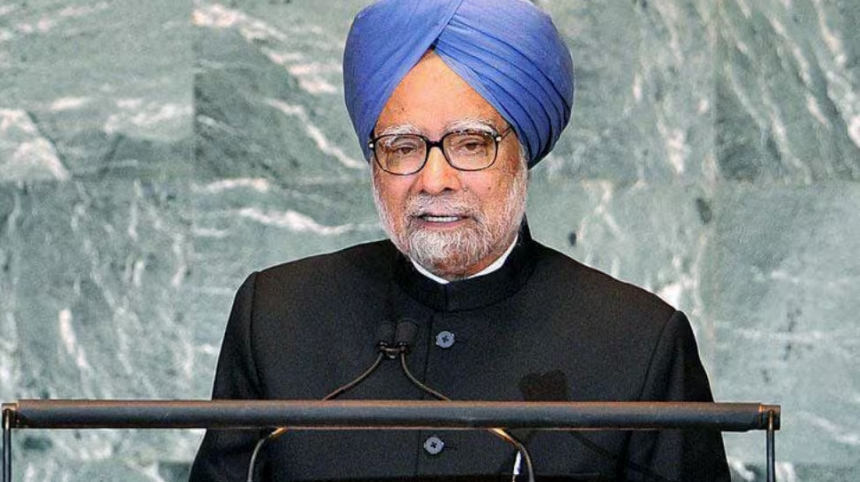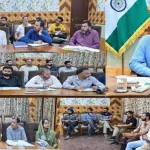TRIBUTE
Former Indian Prime Minister Dr. Manmohan Singh, an iconic economist and politician, passed away on Thursday at AIIMS, New Delhi, at the age of 92. Revered as a symbol of intellect, integrity, and foresight, Singh leaves behind a monumental legacy in Indian politics and economic reforms.
Renowned as an esteemed economist and statesman, Dr. Manmohan Singh, the 13th Prime Minister of India, has firmly established himself as a prominent figure in the global economic and political arena. He is widely recognized as one of the most influential personalities worldwide. Throughout his career, Dr. Singh has dedicated himself to serving his country and consistently demonstrated remarkable humility.
India’s fourteenth Prime Minister, Dr. Manmohan Singh, was rightly acclaimed as a thinker and a scholar. He will be remembered for his diligence, academic approach to work, accessibility, and unassuming demeanour.
Dr Singh’s commitment to development and his many achievements have been recognized through the many honours that have been conferred upon him. These include the Padma Vibhushan in 1987, the Euro Money Award for Finance Minister of the Year in 1993, the Asia Money Award for Finance Minister of the Year in both 1993 and 1994 and the Jawaharlal Nehru Birth Centenary Award of the Indian Science Congress in 1995.
Before leading the country, Dr Singh had a distinguished career in finance and economics, shaping India’s economic landscape. Serving in various key roles, including as the economic adviser in the Commerce Ministry, chief economic advisor in the Finance Ministry, and governor of the Reserve Bank of India, he is best remembered for his pivotal role in liberalizing the Indian economy during his tenure as Finance Minister from 1991 to 1996.
The former PM widely regarded as the architect of India’s economic liberalisation, played a pivotal role in transforming the country’s economy during a time of severe crisis. His tenure as Finance Minister in the early 1990s and later as Prime Minister from 2004 to 2014 introduced policies that continue to influence India’s growth. Known for his humility and academic brilliance, Singh’s economic reforms and social welfare programmes remain his enduring legacy.
Dr. Manmohan Singh was born on September 26, 1932, in a village in the Punjab province of undivided India. He completed his Matriculation examinations from Punjab University in 1948. His illustrious academic journey took him from Punjab to the University of Cambridge, UK, where he earned a First Class Honours degree in Economics in 1957. Dr. Singh followed this with a D. Phil in Economics from Nuffield College at Oxford University in 1962. His book, India’s Export Trends and Prospects for Self-Sustained Growth (Clarendon Press, Oxford, 1964), was an early critique of India’s inward-oriented trade policy.
Dr. Singh’s academic credentials were further strengthened by his years on the faculty of Punjab University and the prestigious Delhi School of Economics. He also served briefly at the UNCTAD Secretariat, presaging his later role as Secretary General of the South Commission in Geneva between 1987 and 1990.
In 1971, Dr. Singh joined the government of India as economic advisor in the commerce ministry. This was soon followed by his appointment as Chief Economic Advisor in the Ministry of Finance in 1972. Over his career, Dr. Singh held several significant positions, including Secretary in the Ministry of Finance, Deputy Chairman of the Planning Commission, Governor of the Reserve Bank of India, Advisor to the Prime Minister, and Chairman of the University Grants Commission.
From 1991 to 1996, Dr. Singh served as India’s Finance Minister, marking a turning point in the nation’s economic history. His role in ushering in a comprehensive policy of economic reforms remains globally celebrated. Those years, marked by transformative change, are inseparably linked to his vision and leadership.
The financial sector underwent significant changes under his leadership. Following the Narasimham Committee’s recommendations, the statutory liquidity ratio (SLR) was reduced from 38.5% to 25%, and the cash reserve ratio (CRR) was lowered from 25% to 10% over a few years. These measures allowed banks to lend more freely, supporting economic expansion. Licensing requirements for bank branches were eased, and interest rates were deregulated, creating a more competitive and efficient banking system.
His reforms not only saved India from the brink of collapse but also laid the foundation for sustained economic growth. The policies attracted foreign investments, boosted exports, and created new industries. Millions of Indians were lifted out of poverty as job opportunities expanded. By dismantling socialist controls, India transitioned into a market-driven economy, setting the stage for its rise as one of the world’s fastest-growing economies.
Dr. Singh represented India at numerous international conferences and organizations, including leading Indian delegations to the Commonwealth Heads of Government Meeting in Cyprus (1993) and the World Conference on Human Rights in Vienna in 1993.
In his political career, Dr. Singh served as a Member of India’s Upper House of Parliament (the Rajya Sabha) from 1991 and was the Leader of the Opposition between 1998 and 2004. He was sworn in as Prime Minister on 22nd May 2004, following the general elections, and took the oath of office for a second term on 22nd May 2009.
Manmohan Singh was not only a politician but also a distinguished economist. He held roles at the Reserve Bank of India, Planning Commission, and International Monetary Fund (IMF) before entering politics. His expertise earned him respect globally, with many recognising his efforts to integrate India into the global economy.
His economic liberalisation policies transformed India into one of the world’s fastest-growing economies. He dismantled socialist regulations, attracting foreign investment and creating jobs. His legacy includes a modernised industrial sector, a strengthened banking system, and policies that uplifted millions from poverty.
As India mourns his loss, history indeed remembers Dr Manmohan Singh—as the architect of modern India’s economic journey and a leader whose policies continue to shape the nation’s future.
(The author can be mailed at [email protected]. X/Twitter: @haniefmha)








